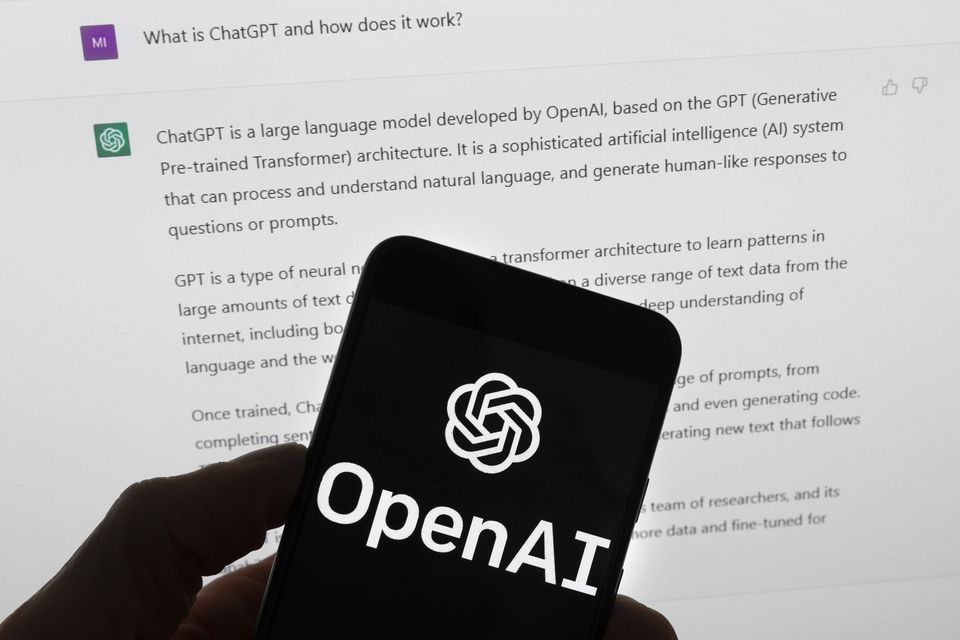AI company reveals new technology which can clone a person’s voice

OpenAI has revealed new technology which can clone a person’s voice
(AP Photo/Michael Dwyer, File)
ChatGPT-maker OpenAI is getting into the voice assistant business and showing off new technology that can clone a person’s voice, but says it will not yet release it publicly due to safety concerns.
The artificial intelligence company unveiled its new Voice Engine technology on Friday, just over a week after filing a trademark application for the name.
The company claims that it can recreate a person’s voice with just 15 seconds of recording of that person talking.
OpenAI says it plans tpreviewo it with early testers “but not widely release this technology at this time” because of the dangers of misuse.
“We recognise that generating speech that resembles people’s voices has serious risks, which are especially top of mind in an election year,” the San Francisco company said in a statement.
In New Hampshire, authorities are investigating robocalls sent to thousands of voters just before the presidential primary that featured an AI-generated voice mimicking President Joe Biden.
A number of start-up companies already sell voice-cloning technology, some of which is accessible to the public or for select business customers such as entertainment studios.
OpenAI says early Voice Engine testers have agreed to not impersonate a person without their consent and to disclose that the voices are AI-generated.
The company, best known for its chatbot and the image-generator DALL-E, took a similar approach in announcing but not widely releasing its video-generator Sora.
However, a trademark application filed on March 19 shows that OpenAI likely aims to get into the business of speech recognition and digital voice assistant.
Eventually, improving such technology could help OpenAI compete with the likes of other voice products such as Amazon’s Alexa.
OpenAI knows you're worried about its new AI model that can copy your voice
Grace Eliza Goodwin
Mar 29, 2024
OpenAI says it's aware of the dangers of using AI-generated voice tools.
The AI firm revealed details about its "Voice Engine" tool, which hasn't fully launched.
The company listed its security steps — and wouldn't confirm if the model will even be widely released.
OpenAI knows that AI-generated voice tools can be a sketchy business.
In a blog post sharing the early test phase results of its new synthetic voice tool, the artificial intelligence company addressed concerns about the use of AI to replicate human voices, especially in an election year.
OpenAI's "Voice Engine" tool, which the company says it first developed in late 2022, uses a 15-second audio clip of a real person's voice to create an eerily realistic, human-sounding replica of that voice.
And users can make that voice say anything — even in other languages.
The tool is not yet available to the public, and OpenAI says it is still considering "whether and how to deploy this technology at scale."
Related stories
Sam Altman may have Siri and Alexa in his sights after OpenAI filed a 'digital voice assistant' trademark application
AI has upended US copyright laws. Upcoming proposals could change the rules.
"We recognize that generating speech that resembles people's voices has serious risks, which are especially top of mind in an election year," OpenAI wrote in its blog post. "We are engaging with U.S. and international partners from across government, media, entertainment, education, civil society, and beyond to ensure we are incorporating their feedback as we build."
OpenAI currently uses the tool to power ChatGPT's "read aloud" features, as well as the company's text-to-speech API.
At the end of last year, OpenAI started expanding the tool externally, working with what it described as a "small group of trusted partners" to test out Voice Engine for things like children's educational materials, language translation, and medical voice recovery, the company said in its post
OpenAI stressed that its partner organizations must obey strict policies to use Voice Engine, like getting consent from every individual being impersonated and informing listeners that the voice is AI-generated.
"We are taking a cautious and informed approach to a broader release due to the potential for synthetic voice misuse," the company wrote. "We hope to start a dialogue on the responsible deployment of synthetic voices, and how society can adapt to these new capabilities."
Though the company said it's not yet sure whether it will ever release the tool to the general public, it pushed policymakers and developers to take steps to prevent dangerous misuse of the tech it was developing.
For example, OpenAI suggested establishing a "no-go voice list" to prevent the nonconsensual replication of prominent voices, like politicians or celebrities.
The company also recommended that banks stop using voice-based security authentication and that researchers develop techniques to track whether a voice is real or fake.
Axel Springer, Business Insider's parent company, has a global deal to allow OpenAI to train its models on its media brands' reporting.
No comments:
Post a Comment